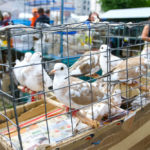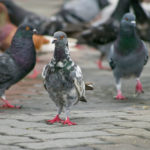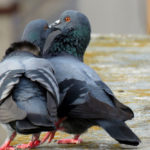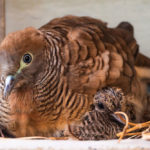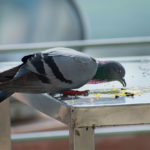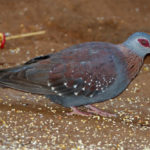Sleep isn’t just reserved for humans. All types of animals need to rest, as sleep keeps them healthy, strong, and well-rested.
Some animals have their own unique way of sleeping. Birds rest very differently compared to other mammals.
This brings up the question, how do pigeons sleep? Keep reading this article to find out more about pigeon sleep habits.
How Do Pigeons Sleep
If you’ve ever seen a pigeon on top of a house, it can be hard to know if they’re sleeping or awake.
Pigeons can’t see very well in the dark, so they are mainly active in the day, leaving sleeping for nighttime.
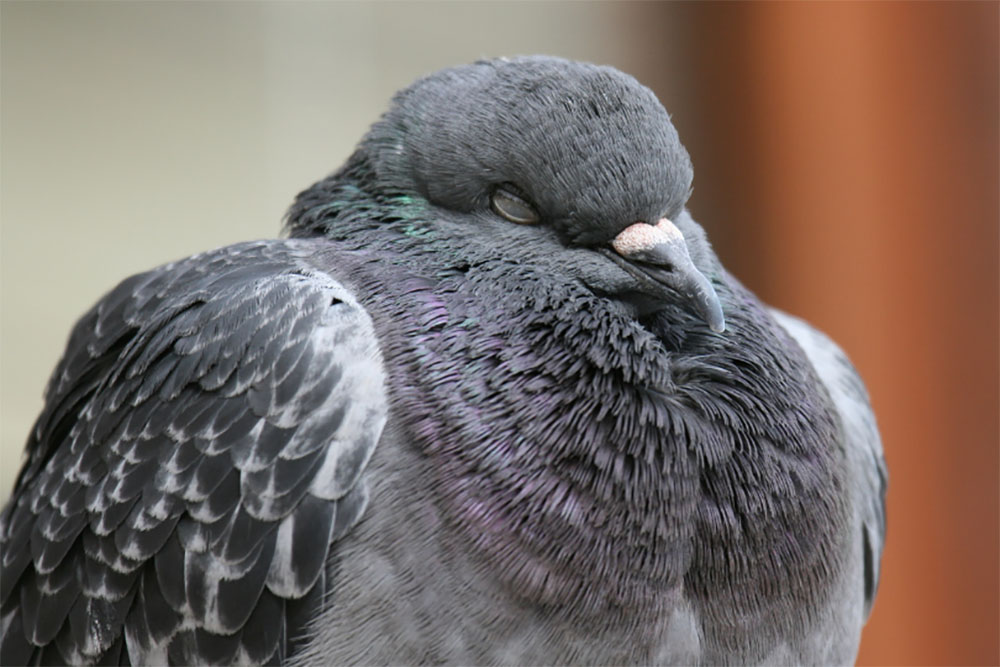
They close their eyes as they sleep, tucking their head into the feathers in their neck. A sleeping pigeon’s chest looks like it’s expanded, or puffed up in the area.
Instead of being fully unconscious, pigeons are half awake when they sleep. As their brain is split into two parts, one part can control one half of their body, fully conscious of its environment.
This is why you may see some pigeons with one eye open.
Is Sleep Vital For Pigeons?
Pigeons can keep healthy by eating good food, but sleep is still important, as it prevents them from becoming ill. Without proper sleep, these birds can become irritable, angry, and unfriendly.
This can also affect their immune system, increasing the likelihood of certain health conditions.
Where Do Pigeons Fall Asleep?
Most people believe that pigeons sleep in nests, as they are nesting birds. This isn’t true, as pigeons only use their nests when they mate, leaving it after their offspring have grown.
Pigeons may return to their nests, but this is only to produce more eggs and raise their children.
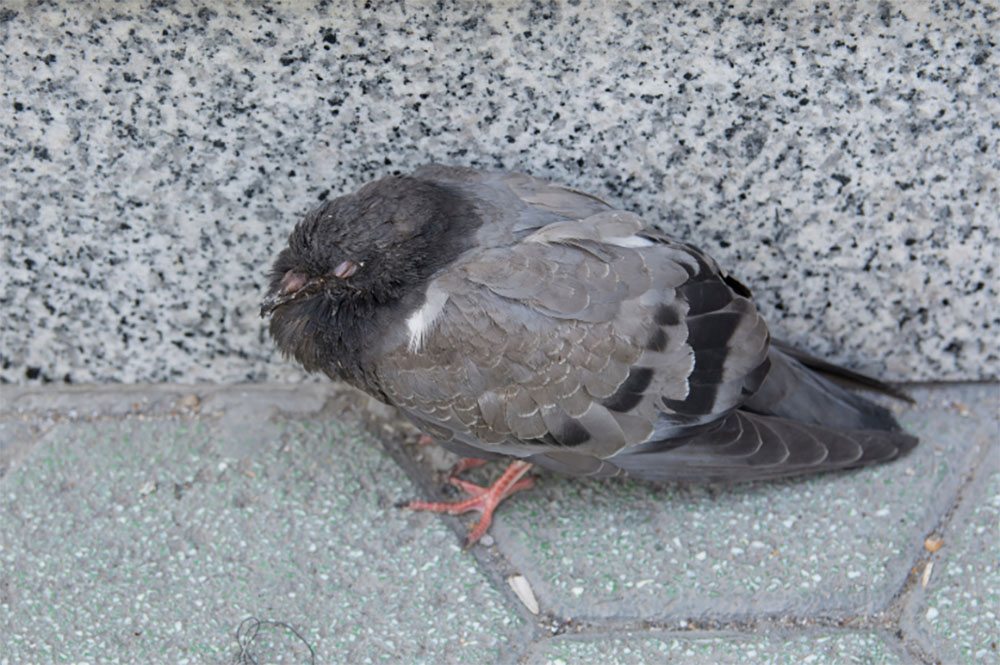
Pigeons tend to sleep on high ground when it is dark. This keeps them away from any predators that thrive at night.
A pigeon may sleep on lower ground if they cannot find a high enough resting place, but they won’t feel safe doing so.
Pigeons sleeping closer to the ground may spend less time in deep sleep, as they have to be aware of potential predators.
When Do Pigeons Fall Asleep?
Pigeons fall asleep in dark environments, but this doesn’t mean they only sleep at night. It may be daylight outside, but if a pigeon is kept in a dark room, they could continue to sleep.
Like humans, pigeons also have naps, but these sleeping periods aren’t as full and deep compared to sleeping at night.
Pigeons sleeping in the day may seem like they are fast asleep, but they will awaken easily.
How Much Time Do Pigeons Spend Sleeping?
Once they find a suitable resting place and there is no more light, pigeons fall asleep very quickly.
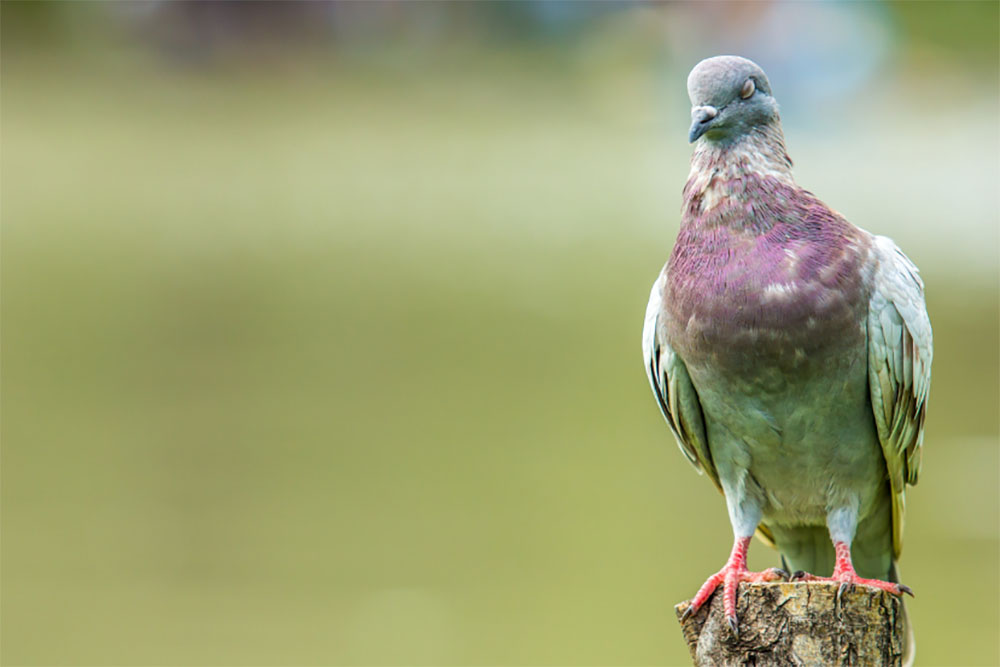
They will continue to rest as long as it stays dark. Pigeons spend a lot of time sleeping, up to 12 hours a night.
At night, any pigeons seen awake will have either been awoken by noise or seen a light so they believe it’s morning.
Do Pigeons Sleep In Stages Like Humans?
Both humans and pigeons sleep in two phases. The first is a deeper slow-wave sleep (SWS) and the second is rapid eye movement sleep (REM), where humans experience dreams.
Research has shown that if pigeons don’t have their nap in the daytime, they will sleep deeper than normal at night. Pigeons will always make up for any sleep lost when they next doze off.
Like humans, pigeons also have a rapid eye movement sleep stage.
This is a lighter sleep phase. Pigeons in REM will have their eyes closed and it will be easier to wake them up.
In Summary
Pigeons need sleep and regular activity, just like humans. If you’ve ever seen a pigeon awake at night, they’ll either have been woken up or believe that lights in the area indicate that it’s daytime.
It’s easy to spot a sleeping pigeon, as they will have burrowed their head into their feathers, puffing their chest out. They’ll tend to sleep on higher ground or in their nests during mating season.
Pigeons are also half conscious when they are sleeping, so do be quiet when you see one resting, as they are easily woken up!

